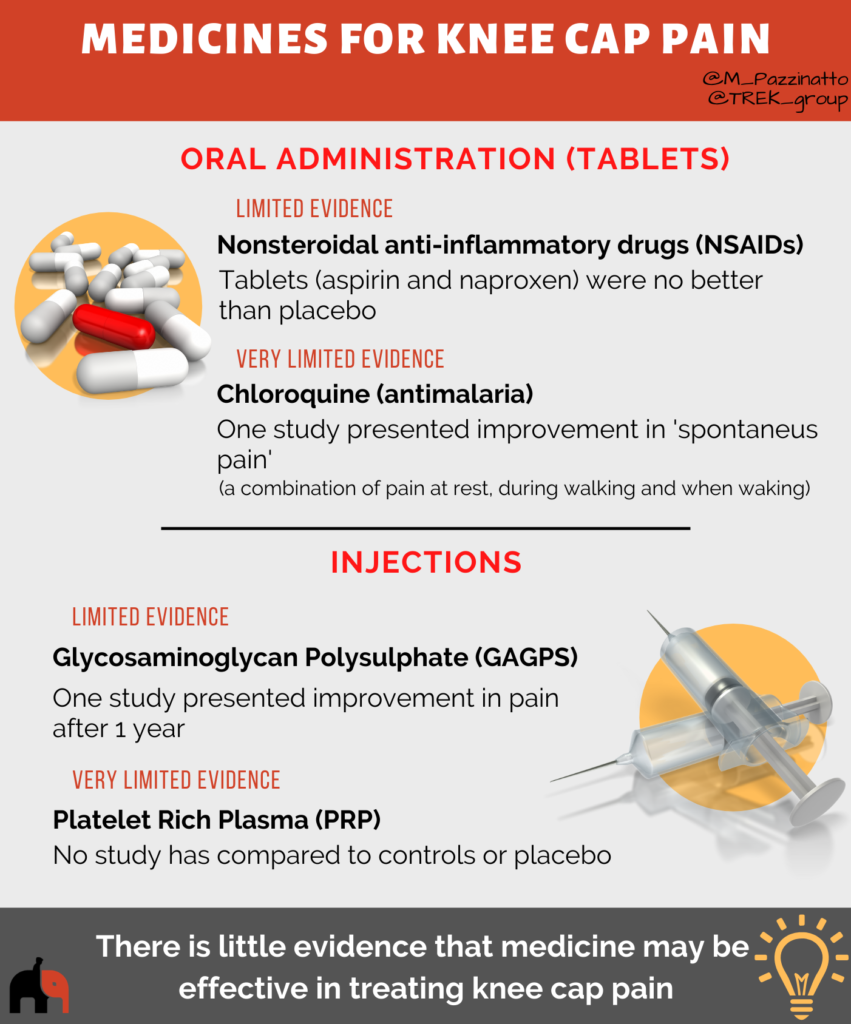In this section you will find information about medicines for knee cap pain.
Medicines are generally prescribed to people with knee cap pain on the premise that they address underlying inflammation or structural abnormalities that cause the pain. However, as we see in previous sections of this website, pain and structure are not strongly correlated, and pain is complex and subjective. This may explain why some medicines offer no benefit over placebo.
The lack of reliable studies means it is hard to offer a strong recommendations related to medicine as a treatment for people with knee cap pain.

NSAIDs are the most prescribed medications for persistent pain conditions. Most people are familiar with over-the-counter, nonprescription NSAIDs, such as aspirin, ibuprofen and naproxen. However, NSAIDs are no better than placebo for reducing pain in people with knee cap pain.
Chloroquine belongs to a group of medicines known as antimalarials. Only one study (1980) has investigate its effect in people with knee cap pain. Despite the fact that this study reported an improvement in ‘spontaneous pain’, caution should be used with this recommendation as chloroquine has not been tested against other interventions.
Glycosaminoglycan is a major component of joint cartilage and joint fluid. It is thought that GAGPS could decrease reactions that cause cartilage damage. However, caution should be used with this recommendation as GAGPS has not been tested against placebo interventions.
Platelet-rich-plasma (PRP) is the cellular component of the plasma with a higher percentage of platelets compared to total blood. It has been popular in the management of sports injuries as the high number of growth factors in PRP are thought to promote healing in injured tissues. However, there is no good evidence to suggest that PRP is beneficial for people with knee cap pain.
Supporting articles
Fulkerson 1986. Comparison of diflunisal and naproxen for relief of anterior knee pain.
Matoso 1980. Essai clinique contôlé de la chloroquine dans la chondromalacie rotulienne.
Raatikainen 1990. Effect of glycosaminoglycan polysulfate on chondromalacia patellae.
